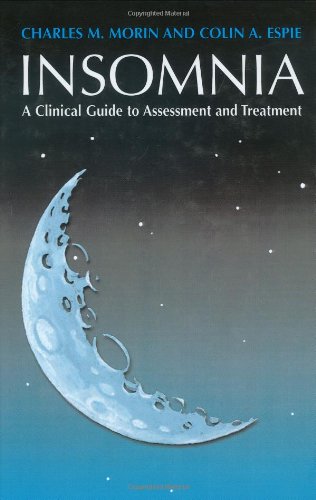

Most ebook files are in PDF format, so you can easily read them using various software such as Foxit Reader or directly on the Google Chrome browser.
Some ebook files are released by publishers in other formats such as .awz, .mobi, .epub, .fb2, etc. You may need to install specific software to read these formats on mobile/PC, such as Calibre.
Please read the tutorial at this link: https://ebookbell.com/faq
We offer FREE conversion to the popular formats you request; however, this may take some time. Therefore, right after payment, please email us, and we will try to provide the service as quickly as possible.
For some exceptional file formats or broken links (if any), please refrain from opening any disputes. Instead, email us first, and we will try to assist within a maximum of 6 hours.
EbookBell Team

5.0
58 reviews
ISBN 10: 0306477505
ISBN 13: 978-0306477508
Author: Charles Morin, Colin Espie
Along with increasing recognition of the consequences and costs of ins- nia, there is growing evidence documenting the effectiveness of cogniti- behavior therapy for insomnia. Yet, there is still a major gap between available evidence and current clinical practice. Much of this gap is due to economics, limited treatment access, and ineffective dissemination of knowledge. There is a definite need for practical materials to facilitate access to and implementation of interventions for insomnia. As scientis- practitioners, we are constantly reminded of this need by frequent requests from clinicians around the world for questionnaires and handouts to assist them in treating insomnia patients. It was during a recent international sleep meeting, more specifically on a trainjourney between Dresden and Prague, that we drafted an outline of a handbook that would help fill this gap. This clinical handbook describes an evidence-based treatment p- gram for insomnia. Its content is based on materials that have been cl- ically tested and validated with patients in various settings and with different subtypes of insomnia. The manual is divided into eight chapters. Chapter 1 presents an introduction to sleep and provides answers to f- quently asked questions about the nature of sleep, its determinants, and about the consequences of sleep loss and insomnia. Chapters 2 and 3 outline the main clinical features of insomnia and differential diagnostic issues and describe a practical approach to the assessment of insomnia complaint.
1 The Basics of Sleep
2 Clinical Features of Insomnia
3 Assessment and Differential Diagnosis of Insomnia
4 Sleep Hygiene and Relaxation Therapy
5 Sleep Scheduling
6 Cognitive Therapy
7 Sleep Medications
nice guidelines insomnia treatment
insomnia a clinical guide to assessment and treatment
insomnia assessment
insomnia assessment questions
insomnia assessment tool
Tags: Charles Morin, Colin Espie, A Clinician's, Insomnia